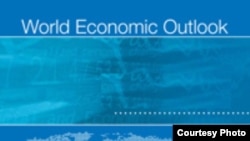WASHINGTON DC —
The International Monetary Fund (IMF) says sub-Saharan Africa is expected to continue growing at a strong pace between this year and 2014 with resource-rich and lower-income economies benefiting from robust domestic demand.
In its latest World Economic Outlook Report, the IMF said growth is projected to reach 5.5 percent in 2013 and 6 percent next year. It says the generally strong performance is based, to a significant extent, on ongoing investment in infrastructure, continuing robust consumption, and the activation of new capacity in extractive sectors.
The IMF further said inflation in the region - moderated from 10 percent at the end of 2011 to less than 8 percent at the end of 2012 - is expected to remain at the same level this year.
It said the main risks in most parts of sub-Saharan Africa are insecurity, the downside of the Eruopean Union currency and reduction of investments in emerging market economies, including South Africa.
According to the IMF, this will weaken key commodity prices and hit mineral exports.
It added that elections to be held in some countries are expected to affect growth in the region. Zimbabwe is gearing for a general election to be held sometime this year.
Driven largely by domestic momentum in private consumption and investment as well as exports, sub-Saharan Africa experienced robust growth in 2012 – continuing a long trend of expansion though this was derailed by civil conflicts in mali and guniea-bissau and oil export challenges in South Sudan
In its latest World Economic Outlook Report, the IMF said growth is projected to reach 5.5 percent in 2013 and 6 percent next year. It says the generally strong performance is based, to a significant extent, on ongoing investment in infrastructure, continuing robust consumption, and the activation of new capacity in extractive sectors.
The IMF further said inflation in the region - moderated from 10 percent at the end of 2011 to less than 8 percent at the end of 2012 - is expected to remain at the same level this year.
It said the main risks in most parts of sub-Saharan Africa are insecurity, the downside of the Eruopean Union currency and reduction of investments in emerging market economies, including South Africa.
According to the IMF, this will weaken key commodity prices and hit mineral exports.
It added that elections to be held in some countries are expected to affect growth in the region. Zimbabwe is gearing for a general election to be held sometime this year.
Driven largely by domestic momentum in private consumption and investment as well as exports, sub-Saharan Africa experienced robust growth in 2012 – continuing a long trend of expansion though this was derailed by civil conflicts in mali and guniea-bissau and oil export challenges in South Sudan




